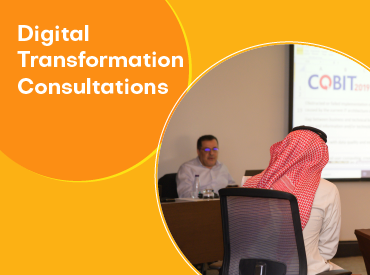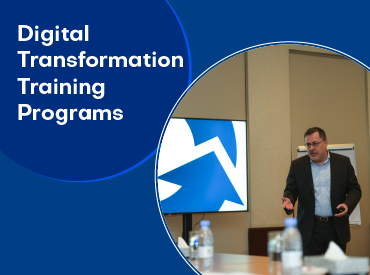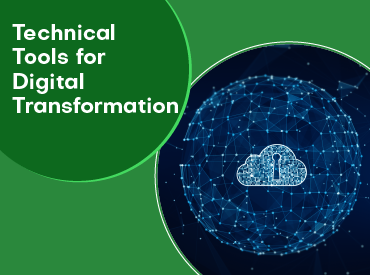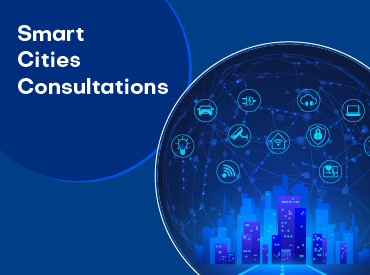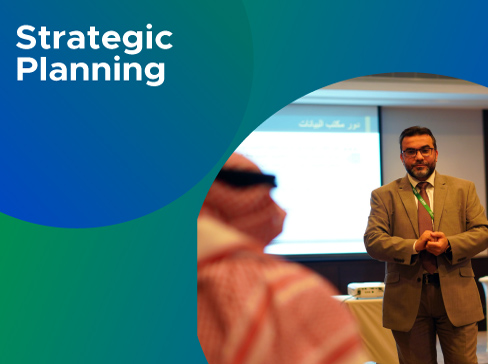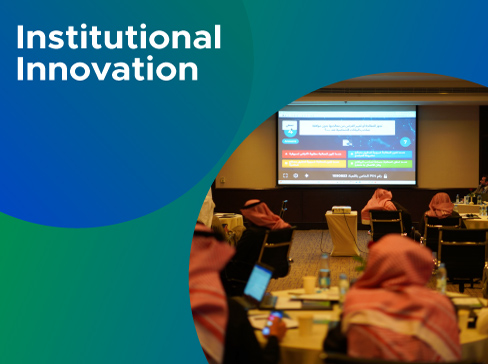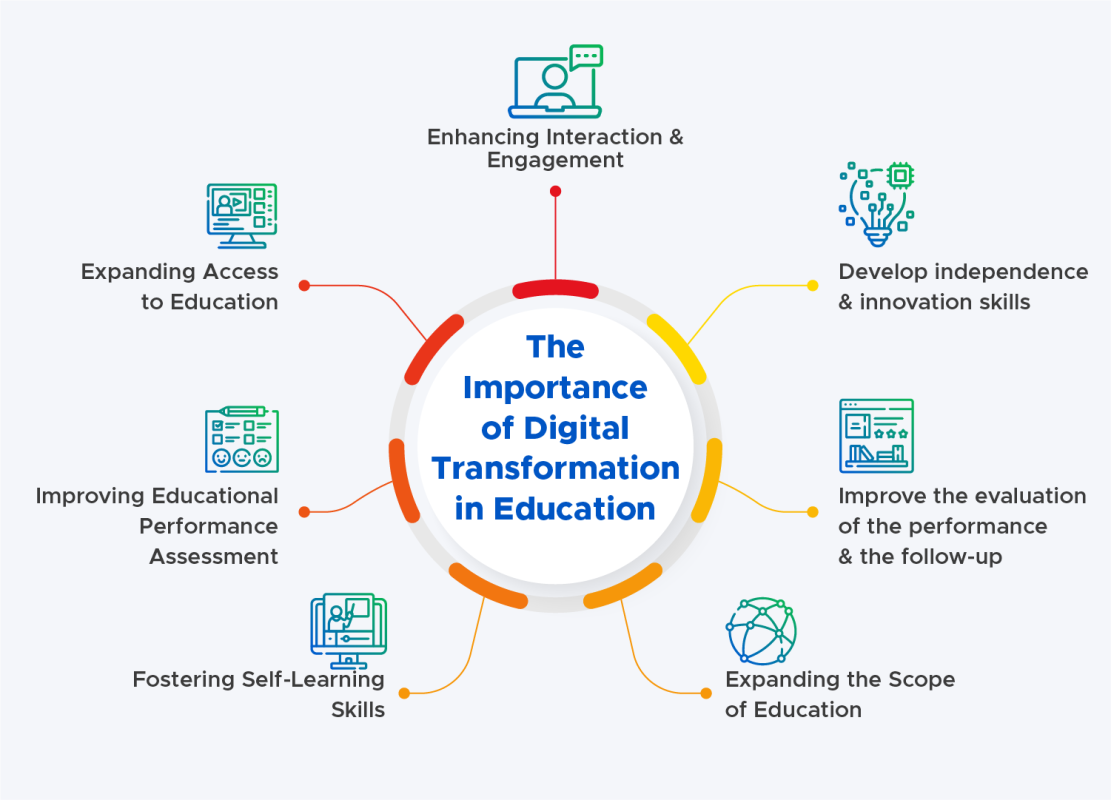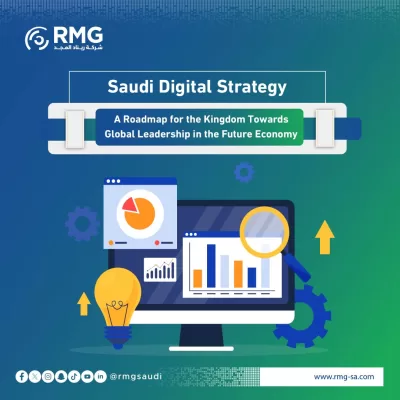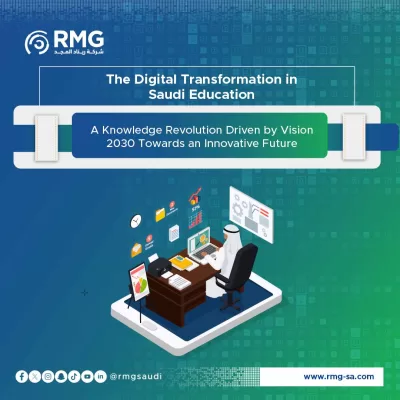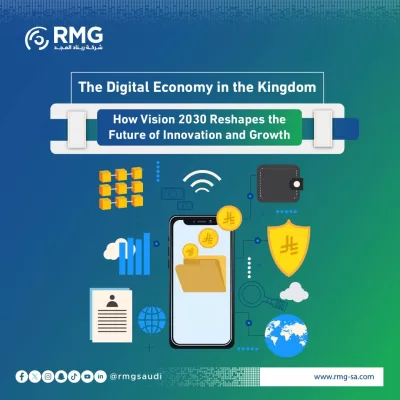Blog Body

Digital technologies, the internet, and information technology have an effect on every part of life. Among the sectors that have undergone a radical transformation thanks to these modern technologies is the field of education.
Digital transformation in education has become an inevitable necessity to keep up with rapid advancements, improve the quality of education, and achieve its objectives effectively. In this article, we will delve into the details of digital transformation in education and its impact in the Kingdom of Saudi Arabia while highlighting some intriguing headings that emphasise the significance of this transformation.
Firstly,
What is Digital Transformation in Education?
Digital transformation in education refers to the use of modern technologies and digital means to enhance the learning process and provide an advanced and innovative educational environment. This transformation includes the use of smart devices, educational applications, interactive digital content, distance learning, virtual reality, and augmented reality. The aim of digital transformation is to enhance critical thinking and analytical skills among students, enabling them to learn through innovative methods that make education more enjoyable and effective.
The Importance of Digital Transformation in Education
- Enhancing Interaction and Engagement: Digital transformation in education helps stimulate interaction between students and teachers and increases the level of engagement in virtual classrooms, leading to improved learning experiences for all.
- Expanding Access to Education: Digital Transformation breaks down barriers of time and place, allowing students to benefit from digital learning resources regardless of their geographical location. This contributes to achieving equal opportunities in education.
- Improving Educational Performance Assessment: Digital transformation provides accurate and sophisticated assessment tools that assist teachers in analysing students’ performance and understanding their academic achievements better, enabling them to develop more effective teaching strategies.
- Fostering Self-Learning Skills: Digital transformation encourages students’ self-initiative in learning as they can access diverse learning resources outside traditional classrooms and develop and implement their personalised learning plans.
- Expanding the Scope of Education: Digital transformation can contribute to expanding the scope of education and access to knowledge for students in remote or underserved areas.
- Enhancing Performance Evaluation and Monitoring: The digital transformation enables teachers and schools to enhance the student performance evaluation and monitoring system, allowing for effective interaction.
- Developing Independence and Innovation Skills: Digital Transformation can encourage students to develop independence and innovation skills by implementing educational projects that rely on modern technologies.
Guiding Investment Towards Digital Transformation in Education
To achieve successful digital transformation in education, there must be effective guidance for investment in this direction. To that end:
- Increase Funding: Funding allocated to developing technological infrastructure and improving educational technologies in schools and universities must be increased.
- Provide Training and Qualification: Teachers and educators need training and qualification to effectively utilise educational technologies. Workshops and training programmes should be provided to equip them with the necessary skills.
- Integrate Technology into the Curriculum: Digital technologies should be fully integrated into the curriculum to enhance learning and improve academic performance.
- Encourage Innovation and Scientific Research: Encouraging innovation and scientific research in educational technology will lead to the development of new and innovative solutions.
- Develop Innovative Educational Content: Innovative and interactive educational content should be developed to meet the needs of students and enhance their learning experiences.
Digital Transformation in Education in the Kingdom of Saudi Arabia
The impact of digital transformation in education has been evident and positive in the Kingdom of Saudi Arabia. The Saudi government has shown significant interest in integrating digital technologies into education through initiatives and programmes that promote digital transformation in schools and universities.
The country has witnessed significant improvements in the quality of education as a result of this transformation, leading to enhanced academic performance and enabling students to acquire modern skills demanded in the job market.
Challenges Hindering Full Implementation of Digital Transformation
Despite the importance of digital transformation in education, it faces some challenges that hinder its full implementation. Among these challenges are:
- Technological Infrastructure: Implementing digital transformation in education requires a robust and sustainable technological infrastructure. Some schools and universities may lack the necessary smart devices and high-speed internet access, impeding the effective application of technology in the learning process.
- Training and Qualification: Teachers and educators need training to effectively use modern educational technologies. Some teachers may face difficulties in utilising educational applications and information technology, necessitating the provision of relevant training courses.
- Digital Security and Privacy: Policies and procedures must be established to protect students’ and teachers’ data and ensure the confidentiality of information and educational content. Awareness of the importance of digital security is crucial to dealing with security threats.
- Continuous Investment: Digital transformation in education requires continuous investments in the development of educational technologies, updating digital content, and developing new applications. Long-term strategies must be in place to sustain the progress of digital transformation in education.
- “Security and Privacy Issues: Caution must be exercised to protect student and teacher data and ensure the confidentiality of information and educational content. Strict policies and procedures should be established to address security issues and counter any security threats.
- Educational Culture and Mindset Shift: The digital transformation in education may encounter resistance from individuals who adhere to traditional teaching and learning methods. It is necessary to promote a shift in educational mindsets and enhance the technological culture in schools and universities.”
Conclusion
Digital transformation in education should be a top priority for educational institutions and governments worldwide, including the Kingdom of Saudi Arabia. Maximising the benefits of educational technologies will significantly improve the quality of education and empower students to make the most of their educational experiences. Overcoming the challenges hindering implementation can be achieved with the assistance of specialised companies, such as Renad Al-Majd for Information Technology and Cybersecurity, a leading company in the Kingdom specialising in digital transformation and cybersecurity.



